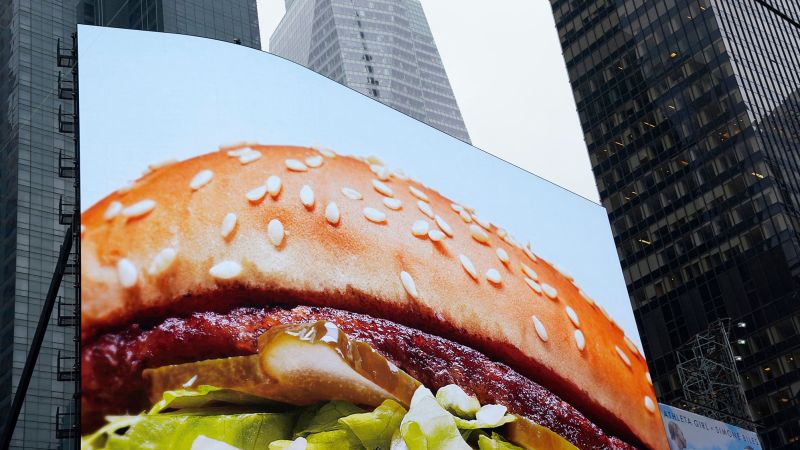Wendy’s and McDonald’s have emerged victorious from a lawsuit that accused the fast food chains of false advertising.
A federal judge dismissed a lawsuit brought against the two companies accusing them of selling smaller hamburgers than advertised and alleging the food didn’t look as appetizing in person as pictured on their websites.



The advertising angle is likely what sank their case. Proving the food does not meet a technical specification, like not having a quarter pound of beef in a fully cooked patty, is easier to prove. But advertising has always been hyperbole.
A very important aspect that I think people overlook is that they use similar/same marketing photos of the food on their menu. That’s not advertising, maybe that’s what they will argue. If I look at a menu and they have a picture of the food, I’m going to expect I get what I see (within a margin) vs when I see an advertisement I expect it to be a bit hyperbolic.
You could argue that menus are just in-store advertising
A lot of things in stores have to add disclaimers about what is on the cover of the box vs what’s on the inside. I don’t see how fast food gets a pass on that. Or why people are just okay with it too.
Hey I’m not defending them, just trying to imagine what justification they’d use.
Yeah, that might be a good case. Isn’t the weight advertised when it’s frozen/before it’s cooked? How can they call it a quarter pounder if half of it’s weight is reduced before it’s served to you?
Because that’s how food works. You buy a 1lb steak at the butcher and you see him put it on the scale. You don’t weight it when it comes off the grill. You might have added butter to it, and lost some weight to dripping and evaporation. It’s sort of disengenuous, if you have ever cooked, to not understand that they don’t weight cooked patties and throw out the ones that lost too much weight or whatever.
Also they put a * next to the 1/4 pound that explicitly states that it is the patty prior to cooking because this has already been argued in court
The asterisk as I’ve seen is only on advertisements and it’s really only there to shift responsibility away from the retailer towards the consumer. You won’t see that kind of disclosure when you’re there, looking at the menu. I don’t understand the point you’re making though, how is it the consumers responsibility to know that when the consumer can’t verify? I can’t very well inspect the meat and see if you’re calling an iced over pound of meat “1lb” or if it’s thawed, can I? That’s how responsibility is supposed to work. If there isn’t any proof offered, how can the consumer be responsible?
It’s not a surprising result, but advertising now is entirely devolved into straight up lies. Have you seen the techniques they use during advertisements to make food look more appealing? They’re advertising something which is entirely different from the delivered product. Under any kind of logical thinking, that’s immoral and should be illegal. The fact that the current justice system serves corporations more than people doesn’t justify it.
That example doesn’t really translate. The butcher doesn’t cook the meat for you, you take home one pound. If you’re selling cooked meat products, you should have to provide an estimate for the weight of the finished product. One pound of frozen meat is going to weigh a lot less than one pound of thawed meat after it’s cooked
But there’s no way to do that. Should they weigh every patty to be 0.255 lb??
There’s no way to do that? McDonald’s cooks the same burger probably millions of times a day, the patties are cooked for a set amount of time at a certain temperature,they have the process down to a science, and you say there’s no way to do that?
They’re not incentivised to do that maybe. But not “there’s no way to do that.” You can certainly calculate to a small margin how much weight the patty should lose after cooked.